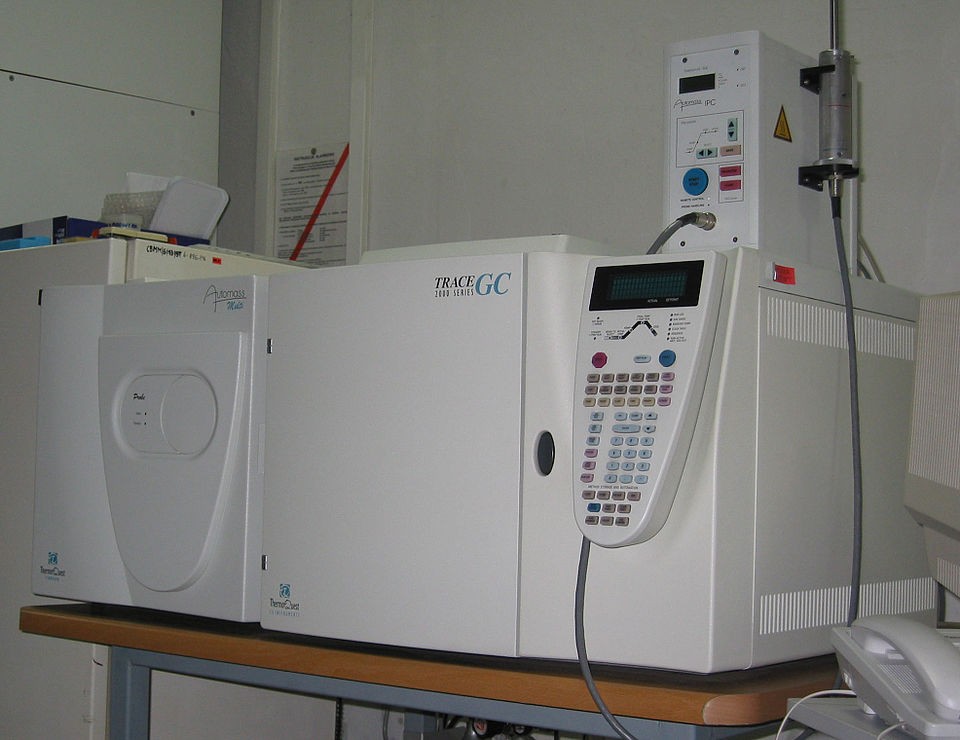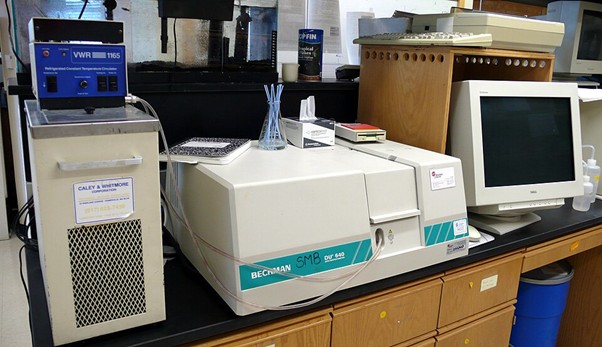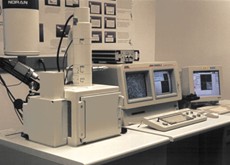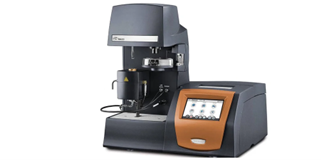Advanced analytical techniques drive scientific research, product development research and quality assurance/evaluation in food, nutraceuticals, pharmaceuticals and other biotechnologies; they enable researchers and biotechnology; these methods allow researchers and manufacturers to accurately identify, quantify and characterize complex materials to ascertain product quality, safety, efficacy, and compliance.
Advanced Analytical Techniques: A Comprehensive Guide for Food, Nutraceutical, and Pharmaceutical Research
Introduction
Advanced analytical techniques drive scientific research, product development research and quality assurance/evaluation in food, nutraceuticals, pharmaceuticals and other biotechnologies; they enable researchers and biotechnology; these methods allow researchers and manufacturers to accurately identify, quantify and characterize complex materials to ascertain product quality, safety, efficacy, and compliance.
Advanced analytical methods can be different to simple ‘tests’ in that they utilize sophisticated instrumentation, quantitative measurement, and thorough protocols to access detailed information regarding molecular and structural properties in a manner that is not available from simple testing. The ever-increasing complexity of formulations, combined with the demands for higher quality, safer, and more innovative products necessitate the use of advanced analytical methods. [1]
What Are Advanced Analytical Techniques?
Advanced analytical methods are methods and techniques using scientific research framework or scientific instrumentations, that analyze materials at molecular, atomic or structural levels. Scientists to apply sound investigation utilizing principles of chemistry, physics and biology, along with specialized instrumentation and techniques to deliver consistent, reproducible, and informative data on the composition, structure and characteristics of materials.
In terms of food, nutraceuticals, pharmaceuticals, and bioactives, analytical methods provide information regarding:
- Ingredient composition and purity
- Chemical structure and molecular interactions
- Physical attributes, such as, texture, and colour
- Contaminants, and adulterants
- Stability and shelf-life parameters
The information gained will provide useful data in developing formulations, quality assurance, compliance to regulations, and innovation. [2]
Categories of Advanced Analytical Techniques
Advanced analytical methods can be categorized into multiple groups:
- Physical and Chemical Analysis: measure physical properties and chemical composition using either wet chemistry or instrumental methods.
- Spectroscopic Techniques: analysis of electromagnetic radiation absorption and emission interactions with matter to identify molecular structure(s) and concentration(s).
- Chromatographic Techniques: separate the individual component in complex mixtures enabling qualitative and quantitative analysis of the components.
- Mass Spectrometry: high sensitivity methods to determine molecular mass and structure information.
- Fractionation, Microscopy and Imaging: measurement the resolution of microstructure visualizes for understanding morphology and particle size.
- Thermal properties and Surface Analysis: study behaviour under temperature changes, and physical chemical properties of surfaces.[3]
Key Advanced Analytical Techniques Explained
1. Chromatography
Chromatography is a method to separate components in mixtures based on their affinity to the stationary and mobile phases. The types of chromatography include:
- High-Performance Liquid Chromatography (HPLC): Useful for non-volatile compounds like vitamins, polyphenols, and preservatives.
- Gas Chromatography (GC): Useful for volatile and semi-volatile compounds, like flavors, solvents, and pesticides.
- Liquid Chromatography-Mass Spectrometry (LC-MS) and Gas Chromatography-Mass Spectrometry (GC-MS): These techniques combine chromatography and mass spectrometry detection and qualitatively and quantitatively analyze very complex mixtures and perform trace analytes analysis.
2. Spectroscopy
Spectroscopy is a set of techniques that study the interaction of light with molecules. Spectroscope methods include:
- Ultraviolet-Visible (UV-Vis) Spectroscopy: which is used to quantify compounds absorbing at UV or visible wavelength like vitamins, and pigments.
- Fourier Transform Infrared (FTIR) Spectroscopy: used to identify functional groups, fingerprint compounds, and detect adulteration.
- Nuclear Magnetic Resonance (NMR) Spectroscopy: used to explain molecular structures based on the observation of the magnetic properties of cores of an atomic nucleus.
- Raman Spectroscopy: provides information about the vibrational aspects of molecules; can be thought of as complementary to FTIR. Raman spectroscopy enables little to no sample preparation.
3. Mass Spectrometry (MS)
MS identifies molecular ions and fragments based on mass-to-charge ratio enabling accurate molecular weight and structural information. Mass spectrometry is useful in differentiating unknown compounds in complex mixtures including trace impurities, and bioactive materials.
5. Thermal Analysis
- Differential Scanning Calorimetry (DSC): Measures changes in heat flow in relation to changes occurring in the sample such as melting, crystallization or other transitions. The heat flow measurements can indicate material stability and guide formulation design.
- Thermogravimetric Analysis (TGA): Measures changes in weight to heat (temperature) when a sample is heated. Thermogravimetric analysis can also be used to calculate the amount of moisture and volatile materials. [4] [5]
Applications of Advanced Analytical Techniques
Food and Beverage Industry
Advanced analytical techniques are indispensable to verifying the authenticity of food ingredients, identifying potential contaminants, regular nutritional information monitoring, and confirming product consistency. HPLC and GC-MS techniques are used to determine flavor compounds, preservatives, and contaminants. Regardless of whether they are used, however, there are airborne or purified liquid extract tests such as spectroscopy methods to verify authenticity and adulteration.
Nutraceuticals and Supplements
Whether it be antioxidants, vitamins or minerals, or herbal extracts, accurate quantification and characterization of active bio-compounds is an absolute requirement for efficacy and regulatory approval. LC-MS and NMR techniques can be utilised for quality controls and label claims validation.
Pharmaceutical Development
Advanced analytical techniques are fundamental for drug discovery, formulation development, and stability testing. These techniques provide a verification of identity, identification of impurities, and evaluation of product release, which are paramount to ensuring safety and efficacy of therapies.
Advanced analytical techniques are also commonly incorporated for deformulation (reverse engineering). Deformulation is the breakdown of a complex product into its individual components to identify and quantify those components. Application of advanced analytical techniques for deformulation provides support for generic drug development, regulatory compliance, intellectual property, and product enhancement in the pharmaceutical and related industries.
Environmental and Clinical Testing
Benefits of Advanced Analytical Techniques
- High Sensitivity and Specificity: Identify trace components and distinguish between closely related compounds.
- Comprehensive Characterization: Provide full molecular, structural, and physical information.
- Regulatory Compliance: Compliance with regulatory agencies and their standards, including: FSSAI, FDA, and EFSA, etc. can be achieved.
- Enhanced Product Quality: Aid in optimizing formulations and batch-lot consistency.
- Innovation Support: Provide new ingredient and formulation discovery. [5]
Limitations and Challenges
- Cost and Complexity: Require expensive equipment and knowledgeable personnel.
- Sample Preparation: Some methods require sample preparation.
- Matrix Interference: Matrix interference is common, especially in complex samples where minor components may not be identified or quantified.
- Time-Consuming: Some techniques have long run times or sometimes little time for data analysis. [8]
Future Trends in Analytical Techniques
- Miniaturization and Portability: Fabrication of hand-held devices to perform on-the-spot test.
- Automation and High-Throughput Screening: Provides high throughput screening and validation and reduced human error.
- Artificial Intelligence and Data Analytics: Help with understanding the data and predicting outcomes.
- Multi-Technique Integration: Coupling multiple techniques such as LC-MS/MS and NMR give maximum information on component profiling. [9]
Conclusion
Advanced analytical techniques are critical instruments that allow scientists and manufacturers to obtain detailed and specific information about the composition, structure, and properties of complex products. Advanced analytical techniques support industries by providing a solid foundation for ensuring product safety, quality, innovation, and compliance with regulatory obligations. As technology develops, these techniques will advance allowing greater precision and efficiency in research and development.
For organizations and researchers seeking to maintain or develop a competitive advantage in the evolving food, nutraceutical, and pharmaceutical markets, it is important to invest time and resources to learn about and use advanced analytical techniques. Accurate analysis and data-driven decision-making, advanced analytical techniques create the building blocks for successful scientific and product development.

Let’s create something Innovative and Delicious together
Food Research Lab strives for excellence in new Food, Beverage and Nutraceutical Product Research and Development by offering cutting edge scientific analysis and expertise.








